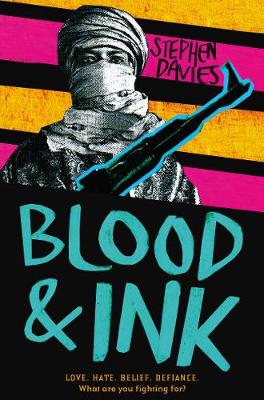Blood and Ink mesmerised me! Very well done, mixing actual events and fiction, showing the differences in muslim faiths, how some are stricter than others, and what was done by a people to rise against their oppressors.
Story:
I was transported by Blood and Ink, through the way it unfolded two sides of a story. How it showed two sides of a war. Two sides of a religion. How good and bad can be blurred, and how difficult it is to change sides once a stance is taken. Because the story is based on true events, I think it was very realistic. Even ficionalised history can be well done, and I found the way everything unfolded to be enlightening.
Taking a village under siege, radical muslims raise against more moderate ones. And they change the law. Little by little, one of the followers, a young boy who managed to help his brethren over the wall realizes that some of the things he knows about his religion and what is practiced by their leader don't really mesh.
There is opposition, a lot of courage, and a strong sense of loyalty among the villagers.
Characters:
Kadi isn't supposed to become the new guardian of the sacred texts, but she almost is anyway. She feels alive in the musty cellar where the history of her village is hidden.
Ali thinks he fights for God. That's what he's heard for months of training, and he is happy when they finally move forward to start to fight. Until people die, that is.
There are side characters that are well fleshed out on both sides, and I think it made my comprehension of what is happening in some places in the world much better.
Writing style :
Blood and Ink is written in first person point of view, past tense. Some chapters are from Kadi's perspective, others from Ali's.
Feels :
All the feels with Blood and Ink. It really does convey both the hope and the despair very well. The righteousness of the leader, and the strong sense of belonging and history with the villagers.
I love this sound of exploding bottles. It is the sound of purity and wisdom, the sound of God returning to Timbuktu.
Our very first song will be "the political song," "Alla Le Ke." It tells the story of two princes in a kingdom called Tumana. One brother stoe the chieftaincy from the other and banished him from the land. Eventually the rightful heir returned and the cieftaincy was given back to him.
